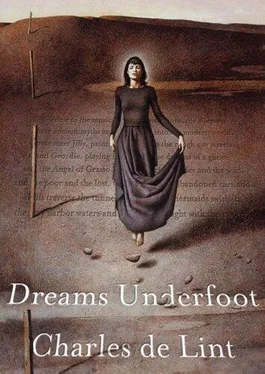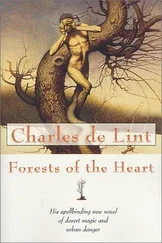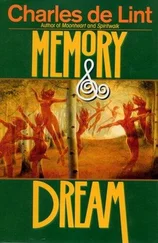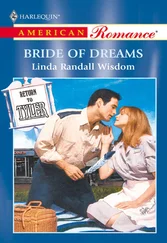It had been at least fifteen years since Wendy had had any reason to come here in behind the library.
But it was so different now. She found herself looking around with a “what’s wrong with this picture?”
caption floating in her mind. This had been a little cranny of wild wood when she’d attended Butler, hidden away from all the trimmed lawns and shrubbery that made the rest of the university so picturesque. But she could remember slipping back here, journal in hand, and sitting under that huge ...
“It’s all changed,” she said slowly. “They cleaned out all the brush and cut down the oak tree ....”
Someone had once told her that this particular tree was—had been—a rarity. It had belonged to a species not native to North America—the Quercus robur, or common oak of Europe—and was supposed to be over four hundred years old, which made it older than the university, older than Newford itself.
“How could they just ... cut it down ... ?” she asked.
The conjure man jerked a thumb over his shoulder towards the library.
“Your man with the books had the work done—didn’t like the shade it was throwing on his office.
Didn’t like to look out and see an untamed bit of the wild hidden in here disturbing his sense of order.”
“The head librarian?” Wendy asked.
The conjure man just shrugged.
“But—didn’t anyone complain? Surely the students ...”
In her day there would have been protests. Students would have formed a human chain around the tree, refusing to let anyone near it. They would have camped out, day and night. They ...
She looked at the stump and felt a tightness in her chest as though someone had wrapped her in wet leather that was now starting to dry out and shrink.
“That tree was John’s friend,” the conjure man said. “The last friend I ever had. She was ten thousand years old and they just cut her down.”
Wendy gave him an odd look. Ten thousand years old? Were we exaggerating now or what?
“Her death is a symbol,” the conjure man went on. “The world has no more time for stories.”
“I’m not sure I follow you,” Wendy said.
He turned to look at her, eyes glittering with a strange light under the dark brim of his hat.
“She was a Tree of Tales,” he said. “There are very few of them left, just as there are very few of me. She held stories, all the stories the wind brought to her that were of any worth, and with each such story she heard, she grew.”
“But there’s always going to be stories,” Wendy said, falling into the spirit of the conversation even if she didn’t quite understand its relevance to the situation at hand. “There are more books being published today than there ever have been in the history of the world.”
The conjure man gave her a sour frown and hooked his thumb towards the library again. “Now you sound like him.”
“But—”
“There’s stories and then there’s stories,” he said, interrupting her. “The ones with any worth change your life forever, perhaps only in a small way, but once you’ve heard them, they are forever a part of you. You nurture them and pass them on and the giving only makes you feel better.
“The others are just words on a page.”
“I know that,” Wendy said.
And on some level she did, though it wasn’t something she’d ever really stopped to think about. It was more an instinctive sort of knowledge that had always been present inside her, rising up into her awareness now as though called forth by the conjure man’s words.
“It’s all machines now,” the conjure man went on. “It’s a—what do they call it?—hightech world.
Fascinating, to be sure, but John thinks that it estranges many people, cheapens the human experience.
There’s no more room for the stories that matter, and that’s wrong, for stories are a part of the language of dream—they grow not from one writer, but from a people. They become the voice of a country, or a race. Without them, people lose touch with themselves.”
“You’re talking about myths,” Wendy said.
The conjure man shook his head. “Not specifically—not in the classical sense of the word. Such myths are only a part of the collective story that is harvested in a Tree of Tales. In a world as pessimistic as this has become, that collective story is all that’s left to guide people through the encroaching dark. It serves to create a sense of options, the possibility of permanence out of nothing.”
Wendy was really beginning to lose the thread of his argument now.
“What exactly is it that you’re saying?” she asked.
“A Tree of Tales is an act of magic, of faith. It’s existence becomes an affirmation of the power that the human spirit can have over its own destiny. The stories are just stories—they entertain, they make one laugh or cry—but if they have any worth, they carry within them a deeper resonance that remains long after the final page is turned, or the storyteller has come to the end of her tale. Both aspects of the story are necessary for it to have any worth.”
He was silent for a long moment, then added, “Otherwise the story goes on without you.”
Wendy gave him a questioning look.
“Do you know what ‘ever after’ means?” he asked.
“I suppose.”
“It’s one bookend of a tale—the kind that begins with ‘once upon a time.’ It’s the end of the story when everybody goes home. That’s what they said at the end of the story John was in, but John wasn’t loying attention, so he got left behind.”
“I’m not sure I know what you’re talking about,” Wendy said.
Not sure? she thought. She was positive. It was all so much ... well, not exactly nonsense, as queer.
And unrelated to any working of the world with which she was familiar. But the oddest thing was that everything he said continued to pull a kind of tickle out from deep in her mind so that while she didn’t completely understand him, some part of her did. Some part, hidden behind the person who took care of all the dayto-day business of her life, perhaps the same part of her that pulled a poem into the empty page where no words had ever existed before. The part of her that was a conjurer.
“John took care of the Tale of Trees,” the conjure man went on. “Because John got left behind in his own story, he wanted to make sure that the stories themselves would at least live on. But one day he went wandering too far—just like he did when his story was ending—and when he got back she was gone. When he got back, they’d done this to her.”
Wendy said nothing. For all that he was a comical figure in his bright clothes and with his Santa Clause air, there was nothing even faintly humorous about the sudden anguish in his voice.
“I’m sorry,” she said.
And she was. Not just in sympathy with him, but because in her own way she’d loved that old oak tree as well. And—just like the conjure man, she supposed—she’d wandered away as well.
“Well then,” the conjure man said. He rubbed a sleeve up against his nose and looked away from her. “John just wanted you to see.”
He got on his bike and reached forward to tousle the fur around Ginger’s ears. When he looked back to Wendy, his eyes glittered like tiny blue fires.
“I knew you’d understand,” he said.
Before Wendy could respond, he pushed off and pedaled away, bumping across the uneven lawn to leave her standing alone in that once wild place that was now so dispiriting. But then she saw something stir in the middle of the broad stump.
At first it was no more than a small flicker in the air like a heat ripple. Wendy took a step forward, stopping when the flicker resolved into a tiny sapling. As she watched, it took on the slow stately dance of timelapse photography: budded, unfurled leaves, grew taller, its growth like a rondo, a basic theme that brackets two completely separate tunes. Growth was the theme, while the tunes on either end began with the tiny sapling and ended with a fullgrown oak tree as majestic as the behemoth that had originally stood there. When it reached its full height, light seemed to emanate from its trunk, from the roots underground, from each stalkless, broad sawtoothed leaf.
Читать дальше












